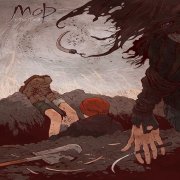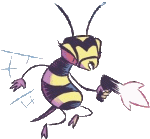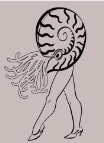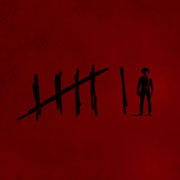|
Given that Final Fantasy 1 was so closely derived from Dnd it had illithids, clerics using blunt weapons, and Vancian casting on first release, itís always interesting watching games go to it for inspiration.
|
|
|
|

|
| # ? Apr 25, 2024 07:57 |
|
Libertad! posted:
Freya from FF9 was also a dragoon from the moment she joined the party.
|
|
|
|
By popular demand posted:I can't think of a way in which randomly adding a heavy topic to a game scene would help, even if everyone is up to debate said topic. Mors Rattus posted:Once again I would like to ban non-Jewish writers from stealing names from Kabbalah. (Except Project Moon. They're cool.) Seconded on general thoughts re: Voidheart Symphony expressed here. I like it, but it definitely is about things that I generally do stuff like play RPGs to not think about. But it's such a genuinely cool-seeming game that I almost want to play it anyway.
|
|
|
|
Snorb posted:Freya from FF9 was also a dragoon from the moment she joined the party. Youíre assuming they know anything about FF9  . .
|
|
|
|
Oh, I'm well aware and love me some FF9. I just wanted to say two characters quickly and offhand for the respective classes.
|
|
|
|
Alright, my first time at one of these reviews/read-throughs - letís talk about VOIDHEART SYMPHONY  Part 1: Intro + influences Voidheart Symphony is a (heavily modified) Powered-by-the-Apocalypse game that deals with the struggle against oppressive evil. Your PCs are misfits and outsiders on the edge of a society which looks very much like ours, but is very much Introduction posted:Thereís a wound in the world, and nobody cares. If they have to step over rough sleepers as they walk to work, if the rich grow richer while children starve, if authorities destroy lives not just through negligence but through malice... isnít that just the way of the world? This contrast between a very mundane, grimy and real world, and its psychedelic otherside is one of the key dynamics of the game. The PCs investigate their targets - oppressors and tyrants of every stripe - in the real world, gaining insights and staying one step ahead of landlords and bailiffs - before diving into a psychic otherworld that empowers the oppressors and smashing manifestations of gentrification with a big hammer. They draw strength from their allies and friends - indeed, a huge portion of your character sheet will be abilities that you gain from relationships and expressions of solidarity, mechanically conveyed by adapted Tarot major arcana - and, stealing the power of the otherworld, undergo various queer apotheoses. If youíre thinking that sounds like ĎPersona 5 but leftistí then yeah. As an initial confession to make, I have not yet played VHS! While Iím familiar with a bunch of PBTA systems, this is a new game to me. Iím mostly doing this F&F because I am planning on running this with my regular group, and would like to know the mechanics much better. As such, I come from the perspective of someone predisposed to like this game, without much practical experience of it but some interest in Ďdoes it successfully the themes that I wantí; more of a readalong than a review. This will mean Iíll be addressing things like playbooks before the GM chapters; having the dessert before the main, in PBTA terms. I hope thatís OK, and youíre not going to worry about ethics in tabletop games j- *am yanked offstage by a big hook* Context and influences Minerva McJanda (who you may know from UFO Press, and other titles like Legacy: Life Among the Ruins, and Rhapsody of Blood - generational takes on the post-apocalyptic rebuilding and Castlevania-esque vampire-hunting genres) is very clear about the vibe of the game - the context section explicitly notes it as a Ďpoltiical gameí, with a focus on Ďsolidarity, community accountability, individual empowerment, and a dream of a better wayí. From my readings of the rules, its modifications and tweaks to the traditional PBTA mechnaics do genuinely support this approach - a left/anarchist counter-capitalist, counter-oppression struggle, as weíll get to later in this review, albeit at the cost of quite a bit of proliferation of mechanical fiddly bits. From the get-go, though, this runs into a couple of problems that people in this thread have observed already: Memnaelar posted:Really want to play Voidheart Symphony, the excelle t rpg by Minerva McJanda that is essentially a Persona 5 but actually honed in on representation and community change themes but I'm finding it hard to motivate when world building a modern setting involving screwed up pols when the world is already so demoralizing. It's not exactly escapism when you're rping the positive change in the world that FEELS like you need superpowers to actually enable. t3isukone posted:Seconded on general thoughts re: Voidheart Symphony expressed here. I like it, but it definitely is about things that I generally do stuff like play RPGs to not think about. But it's such a genuinely cool-seeming game that I almost want to play it anyway. Violence, oppression, and marginalisation - along minority/identity, as well as class grounds (VHS deals with both, and recognises the link between the two) - are pretty widespread right now! They long have been, of course, but we are so much more aware of them now, even if we donít have personal experience of these. How do we make it fun to Ďplayí in a setting when these are the enemies? (Iím not even going to touch the broader question of ĎLARPingí political change). McJanda hints at this - noting that Ďthereís no extradimensional void aiding real-world predators Ė capital, privilege and white supremacy are more than enoughí - but arguably this makes it worse. As Memnaelar notes, thereís no extradimensional powers being marshalled by our PCs in VHS, either. How do we make this fun? Itís not a misery-fest, but this is a genuine problem. In my own planned game, Iím hoping to address this through a bunch of techniques - games taking place in Ď20XXí, a Disco Elysium-inspired Ďpolitics but not our politicsí (but still recognisably reflecting tendencies and dynamics in our world), escalating the scale of the threat to a less personal and more audciously systemic approach, etc. - but this does sit uneasily with the community-y focus of the game, the sense of local immediacy, and the broader player-led approach of PBTA. While Iím not going to intricately pre-plot things out, I feel like it requires a bit of care and balancing to make it stisfying to players, and get this balance right. Weíll come back to this in later chapters when we look into the discussion of GM agendas and Ďcity designí! Returning to the question of influences and inspirations, thereís a lot of material here that is either to be expected, or familiar to people in this thread. Games like Persona , Psychonauts, The World Ends With You, and Devil May Cry feature heavily; The Invisibles is on there for the Ďmystic war against society-controlling oppressive conspiraciesí; RPGs here include Apocalypse World, Spire, Masks, and Blades in the Dark; the music includes Ezra Furman and Janelle Monae; the Ďpoliticsí (!) Section includes Mike Duncanís Revolutions, David Graeber on Debt, and texts on Communist Anarchism. The game is very clear about how it uses each of its inspirations, which is a nice change from the usual Ďgiant list of #aesthetic' material you sometimes get. That said, it does cohere into its own distinct theme - while many of its mechanical twists and tricks are inspired by other games, they do also work together well. Core mechanics and rules  I love VHS' art styles. Much of this will be familiar to people who've played PbtA games before. The game runs as a conversation between players and the Architect (this system's 'GM'), who describes contexts and scenes; when players do something that would trigger one of a list of mechanically stated Moves, they use their moves, often rolling dice. If they succeed, they carry out the move as written, maybe making some choices from a list, maybe offering choices to someone else. If they fail, the Architect describes what happens, as per their Agendas and principles of the game, and the fiction they've already set up. They raise the stakes, shake up the situation, and provide adversity. Our first divergence from 'normal' PbtA comes with the dice approach. If you're in the Castle, gallivanting around in your cool superpowered patriarchy-smashing form, you roll 2d6+attribute (Swords for direct confrontational action; Coins for taking advantage of surroundings and finding openings; Wands for creative solutions and physical grace; Cups for empathy and encouragement):
So far, so familiar. It encourages high rolls, heroic action, backed up by intense personal strength. If you invested heavily in fights abilities, you want to use them to strike foes aside, carom through obstacles, perceive mysteries, and win people to your side. But if you're in the City - the real world, or at least the one we know - you use a different mechanic. You roll a straight 2d6, and compare the result to the relevant 6-tick stress gauge for the relevant action. These are Blood for mental and physical strain; Lack for economic precarity; Infamy for social stigma; Heat for how close the forces of the Castle are on your tail; Fealty for how much you've internalised the castle's values. As you'll notice, these are all bad and exogenous things, and the dice mechanic reflects that.
I don't know the specifics of how this feels in play (though there is the thread-favourite table illustrating probabilities), but I like what I see here. In the City, your actions aren't dependent on individual excellence - the struggle isn't about your incredible individual prowess, but about how you navigate the weight of a grim and oppressive world, and selectively keep your head down/move out when you have an opportunity. This does, of course, mean that there are no 'skills' in the City - you're going to have to trust in the fiction to make sure it all runs in a satisfying manner - but it's a nice contrast to the more individualistic Castle moves. Both City and Castle rolls can have Advantage (roll an extra dice, take the two highest) and Disadvantage (roll an extra dice, take the two lowest). These don't stack, and can either be fleeting (on the next relevant roll only), or lasting (keep affecting the relevant roll until you reach a certain condition). A lot of abilities - particularly in combat - work by passing advantage back and forth; while this is a bit less fiddly than spendable Hold (which VHS also has), it's a bit of a blunt instrument, and complicates the dice maths in ways that aren't spelled out by the table above. OK, so, that's the basic mechanics and themes set out. Next time, I'll have a look at what the game actually involves in terms of setup/introductions!
|
|
|
|
All right, I'm hoping for good things here. it'd be a breath of fresh air after Kult.
|
|
|
|
The cover art reminds me of Hellboy. Any art credits for this book?
|
|
|
|
The cover is Adrian Stone, who is also behind Heart and Spire. Marie Enger did the interior stuff, as well as some photo manipulation by Mina herself.
|
|
|
|
By popular demand posted:All right, I'm hoping for good things here. I can at the very least assure you that it's not going to take a sudden turn into creepy-weird! PurpleXVI posted:The cover art reminds me of Hellboy. Any art credits for this book? Ugh, yes, I should have credited them! Cover art is by Adrian Stone; interior playbook/chapter art is by Marie Enger; the art for the Arcana, and some other stuff we haven't covered yet, is by McJanda herself.
|
|
|
|
Soulbound: Champions of Destruction Destroyers Gorkamorka is the God of Destruction, and he is the divine face of raw, untamed power, smashing his way through anything in his path. He has many aspects under many names and personas, but for the orruks, he will always be the Great Green God, whom they worship in his oldest and original form. He takes the appearance of a massive, muscular orruk warrior with two heads that are always fighting each other. When their arguments become violent, which is a lot of the time, then Gorkamorka will tear himself into two halves - Gork and Mork. Mork is cunning yet brutal, full of spite and vinegar, and is particularly worshipped by Kruleboyz, grots and others that seek to emulate his plotting skill. Gork is brutal yet cunning, more focused on raw force but with surprising tactical skill, and is particularly venerated by the Ironjawz and others that prefer uncomplicated violence. When the two come back together, it means a new Great Waaaaagh! is dawning. It has been centuries since the united Gorkamorka existed, but the Bonesplitterz believe that anew uniting is upon the world in the Era of the Beast. Gorkamorka was, for a time, a friend and ally to Sigmar, after Sigmar helped free him from the clutches of Drakatoa, the Living Avalanche, and they battled each other to exhaustion. They reached an accord as warriors, and Gorkamorka was given the task of hunting down the worst monsters of the realms, destroying them so that new cities could be built. It was a happy time, but eventually the Great Green God got bored and distracted, and he abandoned his work in favor of just doing violence as he saw fit. Generally speaking, Gorkamorka isn't really known for paying attention to his worshippers all that closely, but he will notice acts of pointless or excessive aggression, usually approvingly. He more regularly just sends out waves of Waaaagh! energy to flow into his people and push them on towards the next fight. His blessings can strain the minds of those who are not prepared for them, filling them with the beat of the war drum, the volatile frenzy of the Waaaagh! and the singleminded focus on destruction that marks the god himself. His followers know him also as the Roaring Beast, and they look to these blessings as worthwhile for the sheer power they represent. Ferocity and strength matter more to them than being able to think about peaceful things, and the thirst for war will never be fully extinguished. Miracles of Gorkamorka: Big Waaagh!: Spend 2 Mettle and choose a Zone in Long range. All creatures in that Zone immediately make a melee attack on another creature in that Zone, in Initiative order. If there isn't an enemy for them to swing at, they do have to swing at an ally, and if there is neither enemy nor ally in range, they instead Charge into an adjacent Zone containing an enemy. The creatures so blessed must do all in their power to maximize their damage - including using Talents, traits or Mettle, but not including using Soulfire or Waaagh! Energy if they have it. Da Big Stink: Spend 1 Mettle and let out a giant fart in emulation of Gorkamorka. Until your next turn, your Zone becomes a Minor Hazard that ignores Armor, and anyone that enters or starts turn in it must make a Fortitude roll against your Devotion or be Poisoned until the start of their next turn. You are immune to your own fart cloud, and it follows you wherever you go for theduration. You may sustain the effect from turn to turn by spending 1 Mettle as a Free Action. Da Great Hunta: Spend 1 Mettle and choose an ally within Medium range to invoke Gorkamorka's aspect as Da Great Hunta. Until your next turn, the target gets your Devotion Training in bonus dice when fighting Enormous creatures, or double that against Monstrous ones. You may sustain this from turn to turn by spending 1 Mettle as a Free Action. Deep Finkin': You spend several minutes and perform a ritual unique to you to enter a trance of divine insight. You may use this only during a Rest. Once before your next Rest, when you make a Mind roll, you double your Mind for purposes of determining your dicepool, but because of how hard the effort is, you become Stunned until the end of your next turn with a headache. Alternatively, during a downtime period, you may use this miracle once for a single roll during an Endeavor that requires a Mind roll to double your pool for that roll. Fist of Gork: You empower yourself with the strength of Gork. Until your next turn, add your Devotion Training to all Intimidation rolls, and you have Advantage on Intimidation rolls. Also, your unarmed attacks get +1 Damage, gain Crushing and lose Ineffective. You may sustain this from turn to turn by spending 1 Mettle as a Free Action. Mouth of Mork: You empower yourselfwith the cleverness of Mork. Until your next turn, add your Devotion Training to all Guile rolls, and you have Advantage on Guile rolls. You may sustain this from turn to turn by spending 1 Mettle as a Free Action. Alternatively, when you Rest, you may use this to create a cunnin' plan. All allies that listen to your plan get +1 dice to all rolls to accomplish it before the next Rest. Prophet of the Waaagh!: You are overcome by visions that aid in battle. Choose an ally in Short range and speak your vision to them. They may immediately take an Action, but cannot use it to Dodge, Flee, Hide or perform any other non-offensive action. They get your Devotion Training in bonus dice to any roll their Action requires. Smasha Sense: You intuit the fastest route to the nearest battle currently in progress. If there are none being fought within a day's travel, you learn instead the fastest route to the nearest orruk warclan or ally headed to battle. If no such group exists within a day's travel, you instead learn the fastest route to the nearest monster or group of warriors you can pick a fight with. You also receive a brief vision of the battle in progress, the warclan or allied group's boss, or something about the nearest monster or warrior group, which will reveal something useful to you. Two Hedz Betta: Spend 2 Mettle and emulate Gorkamorka by self-dividing...sort of. You pick a point in your Zone and conjure a green, glowing clone of yourself there that is identical to you in most ways, save that if you are brutal but cunning, it is cunning but brutal, or vice versa. It acts and looks like you, except for being made of gross green goo, and has your knowledge and memories. It shares the same stats and skills as you and has all your gear, but you share the same healthbar and Mettle. It acts on your Initiative and can act the round you conjure it. It remains in existence for your Soul in rounds or until either of you becomes Mortally Wounded, whichever comes first. When the Miracle ends, it melts into gross sludge and you become Stunned until you Take a Breather. Yoonity: Spend 3 Mettle and choose a willing mortal ally within Short range. You emulate Gork and Mork by combining together into one entity in a glowy green vortex of Waaagh! energy, turning you into a two-headed fusion of each other that combines both your physical characteristics. The new entity adds your attributes and skills together and has the best gear of each of you, plus all your combined Talents, spells and Miracles. It does not calculate derived stats from this, but instead uses the best of each between you. The new entity is immediately added to Initiative order and has max Mettle and Toughness and no Wounds, regardless of what was going on before that. The combined entity remains for your Soul in rounds or until it becomes Mortally Wounded, whichever comes first. When the Miracle ends, you and your fusion partner are each hurled into a different adjacent Zone as the united entity explodes into mucus and glow, and you both become Prone. If the entity was Mortally Wounded, you both have 0 Toughness and are Mortally Wounded, but otherwise you revert to your state before the Miracle was used. You are both Stunned until you Take a Breather, and each of you learns something private and secret about the other, but neither of you knows what the other learned. All actions taken by the combined entity must be approved by both you and the other character's player, though you are free to act out arguments between the two heads. The Gulping God is the aspect of Gorkamorka most revered by the ogors, also called the Great Beast that Consumes the Realms. He is similar to the ogors that worship him - a ferocious, hungry monster that is primarily concerned with finding food and eating it with great gusto. The creation myths of the mawtribes say that the Gulping God's hunger was infinite and unquenchable, and he eventually learned to eat parts of the realms themselves, biting out canyons between mountains and pitholes in plains. However, he was still hungry, and he drooled as he rampaged, leaving his divine saliva wherever he bit. The first ogors emerged from these puddles of drool, living manifestations of the Gulping God's hunger. Their destined purpose was to consume as much of the Realms as possible, wearing it down into manageable, bite-sized pieces for their god. Others claim the Gulping God earned the title of Sun-Eater when he swallowed the red sun of Ghur and burned his insides. The Firebelly Cult claims that a great heat rose from within the god, and he belched forth a wave of molten fire, which solidified into the realm of Aqshy itself. Even if this isn't true, the story definitely has inspired many ogors to similarly dangerous and potent efforts of consumption. The Gulping God's blessed visions are granted to those who eat well and heavily, showing them the way to greater feasts. The ogors are not generally sentimental sorts, but they respect those who receive the Gulping God's favor, if only because it leads them to more and more meat. This blessing is most common among Butchers, who often are both wizards and spiritual leaders. Miracles: Call to Gollop: You can only use this when you Rest. You receive a vision of a sacred location of some sort invested with the hunger of the Gulping God. If you survive the trip to this place, you will find a group of likeminded ogors there holding a gollop. You always learn the fastest route to the nearest such location, and it will never be more than a day's journey away. The first time you Rest at the sacred site, the party recovers 1 Soulfire or Waaagh! Energy, and you will always meet fellow followers of the Gulping God there. Channel Greed: Spend 1 Mettle and pick a creature in Short range to awaken the divine greed of. You roll Devotion against their Determination, and if you win, the GM picks a thing or position of power they strongly desire. The target will obsessively pursue this desire in as efficient a manner as they can for hours based on your roll. While pursuing this goal, they get +1 dice to all rolls and will be willing to risk physical harm, lose friendships, or risk disgrace and/or imprisonment to achieve it. The Miracle immediately ends if they achieve their desire. While it's active, you can reuse it to extend the duration, but the target gains Advantage on their roll to resist. If you try to extend it a second time or more, they get Greater Advantage. Chart Mawpath: You may only use this when you Rest. You sense the nearest source of meat that is enough to satisfy you and your party for at least one meal, plus the quickest route to it. While following this Mawpath, you and all allies ignore Difficult Terrain and have Fast Speed, and you and all allies do +1 Damage if you must fight to secure the food. The effects end when you eat the food source or when you next Rest, whichever comes first. Distant Bellower: You call on the blessed voice of the Gulping God to holler real loud. You may shout an instruction to any creature you know, no matter where they are. If they are in the same realm as you, they hear you as if you had screamed in their ear. All creatures in Long range also hear you. When you activate this, you may spend 1 Mettle and make a Devotion roll to cause all creatures in Long range to become Deafened for rounds based on your roll. Eaten Earth: You call on the Gulping God to devour the earth around you. Your Zone becomes Difficult Terrain for everyone but you until your next turn, and you can spend 1 Mettle to also have it be a Major Hazard. Anyone in the Zone when you use this must roll Reflexes against your Devotion or become Prone. You may sustain this round to round for 1 Mettle as a Free Action. Eater of the Sun: You invoke the Gulping God in his aspect as the Sun-Eater and choose a Zone within Long range that has a Hazard. The Zone loses its Hazard, and you choose another Zone in Long range, which gains the Hazard instead as the Gulping God burps it up. If the second Zone already had a Hazard trait, it instead increases that Hazard one step in severity. If it was already a Deadly Hazard, every creature in the Zone immediately takes 3 damage. This can explicitly move and retarget Hazards made by spells, Miracles or similar. If you use it to take control of a Hazard with a duration, you may sustain it round to round with 1 Mettle as a Free Action. Empty Belly Curse: Spend 1 Mettle and choose a creature in Long range. They must roll Fortitude against your Devotion or be cursed with starvation for days based on the roll. For the duration, they can gain no satisfaction from eating or drinking anything and they have no sense of taste. They are always hungry during this time but are immune to the mechanical effects of thirst and starvation. However, the hunger is so all-consuming that they get -1 dice to all rolls. You may activate this again while it's already up to extend the duration, but the target gets Advantage on their resistance roll if they have consumed at least a sphere's worth of Aqua Ghyranis in the last day. Prolonged curses can erode a target's identity and permanently make them unable to think of anything but finding food - ogors under its effects for at least a full month become Gorgers, starving and ravenous monsters that can think of nothing but eating yet unable to ever satisfy their starvation even briefly. Forsaken Children: You invoke the Gulping God's hatred of Chaos and choose an ally in Long range. They get your Devotion Training in bonus dice when attacking Daemons and creatures that are Corrupted By Chaos until your next turn. You may sustain this round to round by spending 1 Mettle as a Free Action. Inedible: You call on the legendary resilience of the ancient ogors, too tough for even the Gulping God to eat, and choose a creature within Medium range. They gain +3 Armor against ogors, Beasts and Enormous or larger creatures. You may sustain this round to round by spending 1 Mettle as a Free Action. Skysmasher: You channel the anger of the Gulping God at those that try to escape his grasp and choose one creature in Long range that can fly. The target immediately drops to the ground, taking 1 Damage per 10 feet fallen, and becomes Prone. You may spend 1 Mettle to add your Soul to the damage dealt. Next time: Kragnos and the Spider God
|
|
|
|
Oh nice to see this back.
|
|
|
|
So it's Nightbane. This is basically Nightbane done right. That's cool.
|
|
|
|
Halloween Jack posted:So it's Nightbane. This is basically Nightbane done right. That's cool. Wait. Which are you calling Nightbane?
|
|
|
|
Voidheart. The main difference is that in Nightbane, you can also turn into a monster in the real world and kill the baddies there. After Carella left, everything Palladium did with it made the game less queer, but that's a rant for another day. Halloween Jack fucked around with this message at 19:24 on May 30, 2022 |
|
|
|
Soulbound: Champions of Destruction Big Horsey Idiot Kragnos is a being from another age - the last of the Drogrukh, horned, immense centaur-creatures from the lands of Donse in the far parts of Ghur. He was the son of their chieftain, Gorgos, and he was legendary even in the Age of Myth for his temper and his destructive rages. His power was enough to draw the ancient orruks to his side. They and other warrior cultures worshipped him as a demigod of war, and he led them in battle against all the kingdoms of Ghur until, at last, he decided to attack the Draconith - an empire of dragons who were allies to the Seraphon. The war devastated the Draconith and Drogrukh alike - slaughtering all but a tiny number of the dragons and all of the Drogrukh except Kragnos. The Slann and surviving Draconith sealed Kragnos away under Twinhorn Peak, trapped in a prison of timelessness that removed him from fate. And then Alarielle, thousands of years later, performed the Rite of Life, unleashing a wave of Jade power over the Mortal Realms. The growth of new plants pierced even the ancient mountains of Ghur, and as their roots broke through, the spell that locked Kragnos out of time shattered. He emerged, full of the divine power that his worshippers had once invested in him, but he found the world unrecognizable. The Drogrukh were gone, all trace of their civilization vanished thanks to his self-destructive warring so long ago. Kragnos, being a big stompy baby, declared that if he couldn't have a civilization, no one could, and decided to destroy all the rest. Unfortunately, only one guy in all the Mortal Realms actually speaks Drogrukh, so the orruks, grots, troggs and similar who have flocked to him do so mostly because they think he's a really cool-looking smashy guy who radiates divinity. They have not yet twigged to the fact that he's a petty idiot, especially with Gobsprakk cutting his promos for him. As gods go, Kragnos is inattentive at best. He doesn't care about his followers a bit, and he offers them no teachings or guidance or even protection as he takes their offerings and, usually, eats them. With some encouragement from Gobsprakk, however, the peoples of Destruction have begun developing their own understanding through him. The priests and blessed of Kragnos are not chosen by him or acknowledged by him - but they wield his power nonetheless, interpreting spiritual meaning into the earthquakes that smash from his feet and the violence he wields so easily. The Kruleboyz have even figured out how to deliberately tap into Kragnos' power through the creation of belcha-bannas in his image to attract the magic of his rage. They call on legends of his ancient conquest, as transmitted through Gobsprakk (and presumably cleaned up to be less whiny by him, too) and have weaponized it to smash everything. Miracles of Kragnos: Bane of Draconiths: You call on Kragnos' hatred of the flying dragons to curse all that flies, choosing a creature within Long range that can fly. They immediately drop to the ground, taking 1 Damage per ten feet fallen and becoming Prone. You may spend 1 Mettle when you do to tear open a hole in the ground where they fall, causing them to become Restrained by solid rock. They must roll Might against your Devotion to break free. Bane of Shaggoths: You call on the might of the ancient Drogrukh, whose great enemy was the Thunderscorn, aka the Dragon Ogors, who fought with them for land and who were the first beings that Kragnos ever killed. Choose an ally within Long range. Until your next turn, they deal your Devotion Focus in bonus damage to Daemons and creatures Corrupted By Chaos. You may sustain this turn to turn by spending 1 Mettle as a Free Action. Bellow of Rage: When you take damage, you may spend 1 Mettle to activate this and roar, making a Devotion roll with bonus dice based on the damage taken. You deal 1 damage per success to all creatures in Short range except yourself, which ignores Armor. You may spend an additional Mettle to also cause Deafened on anyone that takes damage from this until the end of their next turn. Driving Hoofbeat: You call on the hoofbeats of Kragnos, which echoes the beats that drive all life, and choose a living creature anywhere in the same realm as you whose name you know or whom you have met. They learn your location and feel compelled to come to you. They may resist with a Determination roll against your Devotion, but otherwise they must spend the rest of the day traveling towards you until they reach you or they finish a Rest, though you may of course keep using this Miracle to extend the effect. You may use this multiple times to affect multiple targets, to a max of your (Soul + Devotion Training) targets at once. End of Empires: Spend 2 Mettle and stamp your foot. All enemies in your Zone take 5 Damage and become Prone. Swarms take triple damage from this instead of double. Four Stallions: Spend 1 Mettle and choose an ally in Short range. You call on a legend of Kragnos about the four Drogrukh that followed him when his father cast him out, who were as close as he ever came to friends. All died sieging Vexothskol, the Draconith capital, but you may pick one of them when you activate this to give them a blessing until your next turn. If you pick Orus the Keen, your target gets your Devotion Training in bonus dice to Awereness rolls. If you pick Ivaz the Stampede, your target gets your Devotion Training in bonus dice to attack rolls made as part of a Charge action. If you pick Granus the Flattener, your target gets your Devotion Training in bonus dice to attack rolls against enemies who have already taken Toughness damage. If you pick Khiro the Reveller, your target gets your Devotion Training in bonus dice to Entertain rolls. Whatever you pick, you may sustain this turn to turn by spending 1 Mettle as a Free Action. Living Earthquake: Spend 1 Mettle to call on Kragnos' legacy as the God of Earthquakes and the fall of Ur-Haracho. You pick one of Swallow, Shatter or Rend. If you choose Swallow, pick a Large or smaller object within Long range. The ground opens up and swallows it, then closes again. This can remove Difficult Terrain and Cover traits from a Zone if they're caused by the object you got rid of. If you pick Shatter, pick a stone wall or solid structure within Long range. It begins to collapse, affecting an area up to (10*Devotion Training) feet, and this works on buildings or tunnels or even small, unimportant walls in a Zone to give it Difficult Terrain. If you pick Rend, choose a Zone in Long range. The ground of the Zone rips open, splitting it in half. Moving between the two Zones you have made takes an extra Action to jump the gap unless the creature crossing can fly. Mythic Sight: You draw on the past, the time of Kragnos, and overlay it on the present. Until your next turn, you perceive the world as it existed during the Age of Myth, which may reveal all kinds of helpful information. However, you are Blinded to the present while using this. You may sustain this turn to turn by spending 1 Mettle as a Free Action. Shield Inviolate: Spend 1 Mettle to invoke Tuskbreaker, the massive shield of Kragnos that it is said Gorkamorka once broke a tooth on. Until your next turn, you and all allies in your Zone get +2 Armor against damage caused by spells, and you all also get bonus dice equal to your Devotion Training to resist or unbind spells. You may sustain this turn to turn for 1 Mettle as a Free Action. Warmonger: Choose a creature within Long Range and roll Devotion against their Determination. If you win, you awaken the destructive urge in them. If they are aloneor just talking normally, they must immediately seek someone they've got a problem with (for petty or important reasons, it doesn't matter) and start an argument with them. If they are currently arguing with someone, they must immediately escalate to violence. If they are currently in combat, the only Actions they can take on their next turn are Charge or Attack unless no enemies are in range at all, in which case they must Move towards the nearest enemy. The Great Spider God is said to live in the depths of Shyish, in the Land of Endless Webs, the underworld called the Evercrawl. At its center, the Great Spider lurks, feeding on the demigods it has captured. The Spiderfang grots claim it ascended to divinity after biting Gorkamorka's foot, absorbing some of his essence and fusing with the predatory cunning of a spider. They claim all spiders, from godbeast to tiny, descend from it, and that they serve as its eyes across the realms. They first began to worship the Spider God simply to survive, grovelling for protection in the dark woods by offering up meat to the arachnarok spiders. They eventually developed a symbiotic relationship with the creatures, learning to extract poison from them and leading them to greater and greater feasts. It was shortly after they began to work with the spiders and learned of their ancestry that the first Webspinner Shamans became able to tap into the divine power of the Spider God. The Spider God gifts its chosen with magic, with transformation into part-spiders, and more. In return, it demands their obedience to its alien and bizarre desires. Primarily, it wants a secure lair and steady food supply, which have both become harder since the Necroquake, as the Evercrawl has become threatened by Nagash. Beyond that, the Spiderfang claim the Great Spider God works towards the establishment of the Age of Everdank, when shadow will claim the realms and it will be able to hunt everyone, everywhere, at its leisure. However, the Spider God is patient, unlike the manic and unpredictable Bad Moon. It issues commands only rarely, for it has lasted beyond mortal ages and will continue to wait in the darkness until the perfect moment to strike. Miracles of the Spider God: Brood Mind: Spend 1 Mettle and invoke the network of obedience that all spiders feel for the Spider God. You establish a subconscious link to up to your Soul in targets out to Long range. Until your next turn, you and all targets may choose to telepathically share any thoughts you please without speaking out loud. You may sustain this turn to turn for 1 Mettle as a Free Action. Creeping Assault: Spend 1 Mettle to bless your allies with the hunting patterns of spiders. Until your next turn, enemies within Medium range do not beneft from Partial or Total Cover, and you and your allies within Medium range add your Devotion Training to Stealth rolls. You may sustain this turn to turn for 1 Mettle as a Free Action. Earskuttla: Spend 1 Mettle and choose an enemy in Short range that has a Spellcaster Trait or Spellcasting Talent. A tiny spider crawls into their ear, biting their brain and dealing 3 Damage that ignores Armor. They also get -1 dice to all Channelling rolls until they next Take a Breather or Rest. You may spend an additional Mettle when you activate this to do additional Armor-ignoring damage equal to your Soul. Eight Eyes: Spend 1 Mettle and choose a creature within Medium range, gifting them the eight eyes of the Spider God - including on the back of their head. Until your next turn, they gain bonus dice equal to your Devotion Training to Awareness rolls, and they do not reduce Defence against hidden targets and cannot be Surprised. They also cannot be hit with effects from Talents or abilities that require unaware targets, like Backstab. You may sustain this turn to turn for 1 Mettle as a Free Action. Eight Legs: Choose an ally within Medium range. Until your next turn, the target grows four extra limbs, allowing them to walk on walls and ceilings as if they were flat ground, their Speed becomes Fast and they can ignore Difficult Terrain. You may sustain this turn to turn for 1 Mettle as a Free Action. Miraculous Mandibles: Choose an ally within Short range. Until your next turn, the target sprouts envenomed mandibles and can attack with them. Mandibles are a high-damage Rend weapon that also causes Poisoned, so it's good if gross deal. You may sustain this turn to turn for 1 Mettle as a Free Action. Part of the Family: You summon forth a swarm of tiny spiders that crawl up onto you and all allies in your Zone until your next turn, giving everyone your Devotion Training in bonus dice to Survival rolls and to Beast Handling rolls used on spiders. Also, for the duration, aggressive or territorial spiders will not attack you unless you attack them. You may sustain this turn to turn for 1 Mettle as a Free Action. Skitterstrand Visitation: Spend 3 Mettle and choose a creature within Long range. A Skitterstrand Arachnarok appears just long enough to bite them using its own stats, helpfully provided. (Massive damage, high accuracy, lots of dice, and it causes Poisoned.) However, if you use this again before your next Rest, the thing bites you instead because it's pissed off you made it work so much. Ululating Screech: Spend 3 Mettle and choose a Zone in Medium range. You let out a terrible shriek, and until your next turn, all allies in that Zone get a bonus to Melee and Speed and are immune to Frightened. You may sustain this round to round for 1 Mettle as a Free Action. Web of Lies: Choose a creature in Short range. You surround them with spiritual webbing only you can see. Until your next turn, they can only speak lies and get your Devotion Training in bonus dice to Guile rolls. No effect whatsoever can force them to tell the truth for the duration, even other Miracles. You may sustain this turn to turn for 1 Mettle as a Free Action. Next time: Violence Magic
|
|
|
|
You are immune to your own fart cloud, and it follows you wherever you go
|
|
|
|
I quite like Kragnos's miracles they are very flavorful.
|
|
|
|
Rad. I am here for the Voidheart journey. 
|
|
|
|
DUNE 2019 PART 16: CHOAM and Richese Welcome back to Dune 2019. When we last left off, we had just wrapped up the first expansion: Ixians and Tleilaxu. Today, itís time to talk about the second expansion: CHOAM and Richese. This expansion was released in 2022. The eponymous two factions have not previously appeared in any version of the Dune board game, official or fanmade. I have not played this expansion as extensively as the first one, or the base game. My feedback will be based on the handful of matches I've played, and what I heard from the other players in those games.  The devs open the rulebook by admitting that the premise of this expansion is a bit of a reach, and they were basically out of ideas for factions from the original novels.  I donít care about the Brian Herbert prequels where Richese appears (theyíre obliquely mentioned in the original six), but this had to happen eventually. The Ixian/Tleilaxu box basically exhausted all the canon factions that could have plausibly intervened on Arrakis during the timeframe of the original novel. It was either pull in prequel content or just start making poo poo up. This means that, even moreso than expansion one, I canít evaluate the two factions for thematic fit, only whether theyíre fun to play. Expansion two adds two new factions and a couple new mechanics to the base game. Unlike expansion one, but like many other board game expansions, it also includes errataed versions of expansion one content (Artillery Strike and Poison Tooth, with descriptive text that better clarifies their function). It also comes with all the logistical pieces youíd expect - new BG prediction cards for the new factions, new traitor cards for the new leaders, etc. Letís start with the biggest mechanical addition to the game. LEADER SKILLS Leader skills are special buffs that you stick on your leaders, that affect both that leaderís performance in battle, and the performance of your whole force. At the beginning of the game, after the Bene Gesserit predict who will win the game, every player draws two random cards from the leader skill deck. They choose one of those cards to keep, the other gets shuffled back into the deck. Place the leader skill card, face up, in front of your player shield, visible to the whole table. Choose one of your leaders to be your skilled leader, and place that leader in front of the shield with the skill card. Leader skills grant a passive ability and an active ability. The passive ability is active as long as your skilled leader is alive, and applies to your whole force. The active ability applies only in combats the skilled leader is present in. This adds two strategic decisions to setup - which leader skill card do you take, and which leader do you put it on. Sometimes the choice will be obvious, because youíll get a card thatís useful for your faction and one that isnít. When choosing a leader to give the skill two, you need to think about how much you value the passive vs active abilities. If a skill card has a passive ability you really want, put it on a low value leader and drop them in front of your shield. Never use them in battle and theyíll hand out buffs for the rest of the game. If you want to use the active ability, you usually put it on a high value leader. If your skilled leader gets killed, the skill card gets shuffled back into the deck. Whenever you revive a leader (it doesnít have to be the same one), and you have no skill cards, you can draw two leader skill cards, choose one to assign to the newly revived leader, and toss the other one. Letís go through the leader skill cards one by one. Bureaucrat  Note the little expansion 2 logo in the bottom right, indicating which set this card is part of Important to note, the ďpaymentĒ referred to by this card can be either a mechanically defined economic exchange, like shipping and bidding, or a bribe exchanged as part of a binding deal. The constant economic chip damage from the passive ability is annoying for eco factions like the Guild and Emperor. It doesnít actually benefit you directly, and the drain is too small to have an effect on the outcome of the game - last time we played with this card at the table, I won as Emp with 32 spice in my account at the end. The active ability is less than stellar, but can be a good buff if youíre stepping into the role of dedicated win stopper. Not the worst card on earth to take as Guild. Diplomat  Note the fanon Harkonnen logo (the ram) and fanon House Moritani logo (the horse) A small passive buff to worthless cards, and some insurance from the active ability. With the right cards, you could use a small force to really bleed your enemies, forcing them to overcommit. The downside is, if you lose a battle you still lose all the cards you played, and if you donít play cards you canít defend your leader - and if the leader dies you donít get to use the skill. Not a great card in my opinion. Iíd put it on a low level leader and just use the passive ability. Killer Medic  A straightforward buff to leader strength when the relevant card is played. There are four of these in the deck, one each for defense and one each for weapons. Straightforward and powerful, if you get the necessary card. I recommend putting this on a top level leader and holding back until you get a defense - which is how you should be playing with your best leaders anyway. Imagine 10 strength Stilgar. Master of Assassins  Like Killer Medic, but with weapons instead of defense. The same strategy applies. Mentat  The wires are a visual tribute to the Avalon Hill Mentat art A powerful passive ability and a decent active power. Peeking at one card before every battle can really add up, especially if your opponent has a small hand. I say drop it on a low level schlub and never risk it in battle, resisting the allure of a free bonus to your best leader. One of the better cards in the deck. Planetologist  The movement speed buff isnít as useful as it sounds. Two speed isnít enough to get between most of the important locations on the board, except on the top where you can move through the cities to get three movement anyway. The exception is Fremen, who can make some big plays from the polar sink with three movement. The active ability is a nice way to purge some of the less useful special cards from your hand, like the Harvester, but itís pretty situational. I say keep this on a low tier leader for the passive. A situational skill card thatís deadly in the right hands. Prana Bindu Adept  Killer Medic, but with projectiles. Rihani Decipherer  This is an interesting one. The passive lets you scout for ďsafeĒ leaders, while the active lets you render safe leaders unsafe. If the Tleilaxu are at the table, both of these abilities are less useful, since they disrupt the paradigm of safe leaders. I haven'tí seen this one in play, and Iím not sure whether the passive or active power is more valuable. The active could be worthless if you just start the game with a traitor you want to keep. Sandmaster  A decent card for a Fremen or Harkonnen leader, if you donít have anything more directly useful. Worthless if youíre one of the eco factions like Emperor, since you donít have to manually pick up spice. Iíve never played with anyone who liked this card. Smuggler  The bonus force is useless on the offensive, since it only applies to empty territories. The active ability lets you commit most of your forces to a spice blow fight and still pick up spice. Again, good for factions that have to gather spice, but Iíve never heard anyone say a kind word about this one either. Spice Banker  Get free money, use it to buff your skilled leader. I canít see the trickle of funds (really a maximum of 3 per full turn, given that it only triggers once a phase) being that useful without the ability to increase your combat power, so this should go on a leader you expect to use. Suk Graduate  This cardís passive and active abilities are both better versions of the Diplomatís active ability. You lose the defensive mirror ability on worthless cards, but overall I think this one is better. It lets you be just a little more aggressive about committing forces. Swordmaster of Ginaz  Rounds out our quartet of weapon/defense buff cards. Warmaster  Like the weapon/defense buff cards, but with worthless cards. Worthless cards arenít a mandatory discard when you play them, so if you donít need the hand space, you could hang on to one and keep getting the benefit of this card. I donít think itís as good as the other four, because a worthless card takes a space in your battle plan that could be filled with a weapon or defense. I like skill cards a lot more than I expected to. They add complexity to the gameís calculus, since youíve now got an additional variable in every battle (and sometimes other game phases). They arenít balanced, several are worthless to some factions and godlike to others. But they also add interesting tactical decisions and variety. The big downside is that about half the skill cards are not that great. Getting a choice of two cards means you probably wonít be stuck with two that are totally useless to your faction, but youíll definitely feel the power difference. The other downside is that the strategic choice of who to put the skill card on has an optimal strategy for most of the cards. Some have a worthless active ability, some have a worthless passive. I think leader skill cards are a good mechanic, but just barely. STRONGHOLD CARDS Stronghold Cards are only used in the advanced game. They grant a buff to the player who holds the card when they fight battles in the corresponding stronghold. To get a stronghold card, you must end the turn controlling a stronghold. That means nobody begins the game with any stronghold cards, theyíre dealt out based on the board state at the end of T1. Letís go through the cards. Arrakeen  ItísÖ okay. It lets whoever controls Arrakeen spend themselves down a little further than normal and still fight at full strength. Atreides and Hark are usually poor, so it certainly benefits them. Albeit not that much. Carthag  Now weíre getting somewhere. With a shield in hand, your Leader is safe from everything short of a lasgun. If Hark can hang onto Carthag this really improves their starting position, since they can leave a skeleton force and use Feyd without him getting smoked instantly. Situational, but better than youíll get from any of the other stronghold cards. Habbanya Sietch  Effectively a one point buff to your total strength 50% of the time. A welcome bonus, but not something youíll probably be making strategic decisions based on. Ixian Hidden Mobile Stronghold  I can see this being useful in the right circumstances, if the Ixians grab another stronghold that grants a defensive buff. Which would let them peel off some cyborgs to contest other territories. Sietch Tabr  I can see this being a nice economic bonus if youíre a poor faction and you do a lot of fighting in Tabr, like the Fremen. Or if youíre defending Tabr from the Fremen. Itís also the box art for the expansion. Tuekís Sietch  Who cares? I think stronghold cards are white noise. They can change the outcome of a battle, but the benefits they provide are small enough that players rarely plan around them. They donít add enough complexity to make the game worse, but donít add enough depth to make it better. NEW FACTIONS Weíve got two new factions to choose from. The CHOAM Corporation, and House Richese.  Which should we review first, FATAL and Friends? mellonbread fucked around with this message at 19:57 on Jun 4, 2022 |
|
|
|
My vote is for CHOAM because they're actually mentioned in the first book. E: should say, very happy to see the Dune review continue. Hope more people post board game reviews!
|
|
|
|
Where is Richese first mentioned, the glossary?
|
|
|
|
CHOAM
|
|
|
|
CHOAM. Because Richese makes me remember the terrible prequel novels. I actually read them, because I was completely desperate for new words to read at some point, and God are they ever the antithesis of a good prequel.
|
|
|
|
Soulbound: Champions of Destruction Shout Down The Magic So, we get a bunch of new lores for this book. Each one gets an endless spell, all put at the end of the chapter. (They use the non-creature versions of Endless spells rather than the creature versions introduced a book ago, probably because the books were being written simultaneously.) All of these lores have realm affinity for Ghur, and the GM can also grant it for areas redolent with Waaaagh! power or otherwise intrinsically tied to the lore, like Lore of the Moonclans getting realm affinity whenever the Bad Moon is shining high. Lore of Gutmagic: Blood Feast: You might want some Focus, but you only need one success so I wouldn't call this hard to pull off. You lift the innards of a great beast and splatter its juices on yourself, inspiring bloodlust. Until the start of your next turn, you and all allies in your Zone get a boost to Melee and +1 Damage on melee attacks, or +2 Damage if using a bite attack. Extra successes increase duration. Bloodbath: Relatively easy but wants two successes. You chow down on clotted gore, causing all wounds to erupt with blood. Until the start of your next turn, all creatures in your Zone take +3 Damage from all melee or ranged attacks. Extra successes extend duration. No, it can't tell friend from foe. Fleshcrave Curse: Another relatively easy but 2-success spell. You stare someone straight in the eyes and eat a chunk of raw meat. Choose a creature in Long range, and they have to roll Determination, harder the more successes you got, or suffer the curse until the start of your next turn, with extra successes increasing duration. While they are cursed, they hunger for flesh, immediately drop anything they're holding and must attack and try to eat the nearest living creature. They get a boost to Melee and gain a basic bite attack if they didn't already have one, but can take no actions except to Charge or Attack the nearest enemy. If there are no enemies in range, they must attack an ally instead. If there aren't any living creatures in range, they must use all possible actions to Move as close to one as possible. This is a fun way to disable spellcasters. Full Stomach: Again, easy if you can reliably get two successes. You eat large amounts of food, giving the full feelings to a friend. Pick a creature in Medium range. They heal 1 Toughness, +1 per extra success. If this brings them back to full, they also remove all Conditions. Greasy Deluge: Same casting difficulty as above. You chew on some rancid fat and slime and then spit it out, where it expands to a huge pool of grease. Choose a Zone in Medium range. That Zone becomes Difficult Terrain until the start of your next turn, with extra successes increasing duration. Any creature that enters the Zone or starts turn there must make a Reflexes roll, harder the more successes you got, or become Prone. Meat Memory: Very easy to cast. You eat some of a corpse to consume part of its spirit, and thus its memories. As you cast, you eat a dead creature in Close range. You may ask one question, which the GM must answer honestly from the victim's perspective before their death. (Their memory may be subjective or inaccurate, but it will always accurately report what they believed and understood.) You get extra questions based on successes. Molten Entrails: Easy enough to cast if you can reliably get two successes. You lift up the hot guts of a Magmadroth to drive beasts to frenzy. Choose a Beast within Medium range. It gets +1 dice to Weapon Skill rolls until the start of your next turn and may immediately Move or Charge. Extra successes increase the bonus dice. Ribcracker: Hard to cast - you need at least 3 successes. You hold up a ribcage and crack it open as you lock eyes with a foe, cracking their bones as well. Choose a creature with bones within Medium range. They take 1 Damage, which ignores Armor, and must make a Fortitude roll based on your successes or be Stunned until the start of your next turn. Extra successes either increase damage or Stunned duration. Rockchomper: Pretty easy if you can get 2 successes consistently. You mix some beast fangs into some food and eat them, elongating an ally's teeth. Choose an ally within Long range. If they have a bite attack, it gets +1 Damage, Magical and Penetrating until the start of your next turn. Otherwise, they gain a bite attack that is Magical and Penetrating until the start of your next turn. Extra successes extend duration. Whenever your ally deals damage with their bite, they heal Toughness equal to the damage dealt. Voracious Maw: Same casting difficulty as most of the spell list. You manifest your hunger as a toothy pit. Choose a Zone in Medium range. That Zone becomes a Major Hazard until the start of your next turn, with extra successes increasing duration. At the start of your next turn, if the number of creatures in that Zone is less than or equal to your Body, the maw becomes starving and increases to a Deadly Hazard. If the number of creatures in that Zone is greater than your Body, it becomes sated and reduces to Minor Hazard. This continues at the start of each round of its duration, increasing or decreasing as appropriate one step from whatever it was the round before. If this would drop it below Minor Hazard, the spell ends. If this would take it over Deadly Hazard, it immediately deals 3 Damage to all creatures in the Zone and the spell ends. Lore of Moonclans: Face of da Bad Moon: You might want some Focus, but only need one success. You turn your face into that of the Bad Moon, causing terror in foes. This moonface lasts until the start of your next turn, with extra successes increasing duration. Once per turn while you have moonface, you can glare at a target in Short range as a Free Action. They must roll Determination, harder the more successes you got, or become Frightened of you until the start of your next turn and must immediately move to an adjacent Zone of your choice, even if this would make them move into a Hazard or otherwise suffer harm. Hand of Gork: One success needed, but you might want Focus. Choose a Zone in Long range. All allies in that Zone are grabbed by a ghostly green hand, which you may direct to any other point within Long range of your position. It dumps your allies at that point, causing them to fall Prone, but for each extra success, you can choose one ally for the hand to place gingerly, keeping them from becoming Prone. Itchy Nuisance: Another easy one if you have Focus. Choose a creature in Medium range. You curse them with gross issues such as fungal growths, flatulence, chafing and similar. They must make a Determination roll, harder the more successes you got, or suffer -1 die to all rolls and have Disadvantage on all opposed rolls until the start of your next turn. Extra successes increase d uration. Mesmerise: Pretty easy. You choose a creature in Medium range and gaze into their eyes, making them feel you are the most important thing ever. They must make a Determination roll, harder the more successes you rolled, or become Charmed for one minute, with extra successes increasing duration. They will not attack you, but they can still attack your allies. If you hurt them in any way, they get to make a roll to resist the effects with Advantage. Nikkit! Nikkit!: Easy if you can reliably get 2 successes. You summon a pair of ghostly green hands and choose a target in Medium range. They must roll Might, harder the more successes you got, or become Restrained by one of the hands. If they become Restrained, the other hand steals one piece of gear they are holding or carrying (but not wearing - no backpacks or armor stealing and certainly no Fyreslayer rune theft) and drops it at your feet. Extra successes either let you steal more stuff or increase Restrained duration. Nik Magic: Easy enough if you can get 2 successes. You siphon magic through your loonstone talismans, choosing a creature within Long range. If they have the Spellcasting Talent or Spellcaster Trait, you choose one spell they know. Until the start of your next turn, they can't cast that spell and you may cast it as if you knew it. Extra successes extend the duration of both effects. Night Shroud: As the last two for difficulty. You pull out a black nightshade mushroom out and throw it, exploding it into a cloud of darkness. Until the start of your next turn, you and all allies in your Zone are treatedas if in Total Cover. You get a large bonus to Defence against ranged attacks and have Greater Advantage on rolls to stay hidden. Extra successes extend duration. Spore Maws: Easy. You call forth thick spores, which sprout into bitey mouths that attack foes. Until your next turn, any creature that makes a melee attack against you takes 3 Damage. Extra successes extend duration. Squig Lure: This one is pretty darn hard. Choose an enemy in Long range. A sneering illusion of the Bad Moon appears over their head. All Squigs in their Zone immediately move to Close Range of them and make an Attack. Until the start of your next turn, Squigs in the target's Zone will only attack the target. Extra successes extend duration. The Great Green Spite: Easy enough if you can reliably hit 2 successes. Choose a Zone within Long range that has one or more allies in it. You call forth their collective spite into a giant, glowing phantasmagrot, then pick a creature within Long range to be targeted by the phantasmagrot for backstabbing. The target takes 1 Damage per ally in the target Zone, including you. Extra successes further increase damage by tapping into the latent spite of the Bad Moon. Lore of the Savage Beast: Bone Krusha: Pretty easy if you can reliably get 2 successes. Choose a creature in Long range. You call forth a blast of green energy that enters a foe and smashes their insides, causing 1 Damage that ignores Armor. Extra successes add damage. Breath of Gorkamorka: Again, easy if you can get 2 successes reliably. You call on Mork and/or Gork for power and choose any number of allies in your Zone (including you). Until the start of your next turn, you all get a Fly (Fast) Speed as the winds lift you up. Extra successes extend duration. Brutal Beast Spirits: This one's a hard one. Choose a Zone in Medium range and conjure beast spirits into it to buff your allies. All allies in that Zone get a boost to Melee and become Fast Speed if they weren't already. Extra successes increase either the Melee boost or duration. Fallin' Fists: You might want Focus but only need 1 success. You call down a rain of glowing fists on an enemy within Medium range. They take 1 Damage and must make a Fortitude roll, harder the more successes you got, or become Stunned until the end of their next turn. Extra successes increase damage. Glowy Green Tusks: Relatively easy if you can reliably get 2 successes. You call up a green energy that empowers beasts. Choose a Zone in Medium range. Until the start of your next turn, all Beasts in that Zone get a bonus to Damage and their attacks become Magical and Rend. Extra successes either extend duration or increase the damage buff. Gorkamorka's War Cry: Also pretty easy if you can hit those 2 successes. You swallow up your own magic and then unleash a terrible roar. Choose a Zone in Medium range. All enemies in that Zone must make a Fortitude roll, harder the more successes you get, or become Stunned until the start of your next turn. Extra successes increase duration. Kunnin' Beast Spirits: Relatively easy if, again, you can get 2 successes. You infuse allies with the spirits of sneaky beasts. Choose a Zone in Medium range. Allies in that Zone get +1 die to Stealth and Awareness rolls for one minute. Extra successes either extend duration or increase bonus dice. Power of the Were-Boar: A hard one. You call up a stampede of boar spirits to transform your allies. Choose a Zone in Medium range. Until the start of your next turn, all allies in that Zone get +2 Damage to melee attacks and their attacks become Magical and Penetrating, but they can't make ranged attacks or cast spells and get -1 dice to all Mind-based rolls. Extra successes extend duration. Shiny Glyph: Very easy. You paint glyphs in blood, slime or other fluids and infuse them with glowy magic. You must spend at least ten minutes painting the glyphs on some natural feature, like a rock or stump, while casting the spell. For the next week, all living creatures that come within Long range of the glyphs immediately understand their meaning, even if they aren't looking for it. However, you may only communicate simple concepts, such as 'undead thingz are here,' 'stay off my turf' or 'we are at this specific place.' Extra successes extend duration. When the spell ends, the glyph remains intact but has no magical power. You may specifically choose when casting the spell to limit its magical understanding to a specific group, such as your Binding, your warclan, or only Orruks. Squiggly Curse: Pretty easy, though you may want some Focus. Choose a creature in Short range. You envelop them in green clouds, causing 1 Damage that ignores Armor. Extra successes increase damage. If this would kill or Mortally Wound them, they are instead transformed into a Squiggly Beast and consider you an ally. If there is a Swarm of Squiggly Beasts in the Zone, they immediately join it, increasing its abilities as per normal. Next time: Lores of Spiderfang, Sun-Eater and Swamp
|
|
|
|
mellonbread posted:Rihani Decipherer Because you draw two cards and only reveal one of the two you put back, as long as you are good at hiding how you hold stuff, you can use the active to play mind games by just drawing two, revealing one you just drew and putting it and the other you just drew back in the deck. This also has a certain amount of utility in being a faster way to cycle through the deck to scout for safe leaders. This means the active is never worthless, except insofar as it may be on a leader that won't survive the fight to trigger it. e: and of course it adds another element of information you can use as currency.
|
|
|
|
I'll vote for CHOAM and I'm happy that you've finally been able to complete your Dune review!
|
|
|
|
CHOwOAM. Let's make Dune cute.
|
|
|
|
https://youtu.be/mqzTmzyMmtU
|
|
|
|
DUNE 2019 PART 17: CHOAM Welcome back to Dune 2019, expansion two. In this update, weíll cover the Combine Honnete Ober Advancer Mercantiles, the universal development corporation of the Padishah Imperium.  Feydís internal monologue posted:CHOAM was the key to wealth, each noble House dipping from the companyís coffers whatever it could under the power of the directorships. Those CHOAM directorships Ė they were the real evidence of political power in the Imperium, passing with the shifts of voting strength within the Landsraad as it balanced itself against the Emperor and his supporters. CHOAM LEADERS  drat, that sucks. Not a single 5. The Auditor has some ok special powers when you play the advanced game, but youíll be relying on force strength to win battles as CHOAM. Which is an issue, since your steady passive income doesnít allow you to commit and support huge force stacks unless you buff your bank account somehow. As usual, the treachery.online dev had to come up with some leader art for these jokers, since this faction didnít appear in the 1979 game.  Buncha anime characters. Neat. BASIC GAME POWERS CHOAM get no free revives. They start the game with 2 spice and no forces on the board. In the CHOAM Charity phase, before anyone else collects charity, you draw 2 spice from the spice bank for each faction in the game. That means 12 spice in a six player game. If any faction collects CHOAM Charity, that spice is then paid from your bank account. So your normal income is 12, minus 2 for each player who collects that turn. So in the advanced game itís effectively 10 per turn, since the Bene Gesserit collect every round. CHOAMís hand size is 5 instead of 4. You can discard duplicate cards from your hand, claiming 3 spice from the spice bank for each. Additionally, you can discard worthless cards for 2 spice each. CHOAM can also spend worthless cards to get unique effects.
Duke Leto Atreides posted:"Few products escape the CHOAM touch," the Duke said. "Logs, donkeys, horses, cows, lumber, dung, sharks, whale fur - the most prosaic and the most exotic . . . even our poor pundi rice from Caladan. Anything the Guild will transport, the art forms of Ecaz, the machines of Richesse and Ix. But all fades before melange.Ē CHOAM gets no free revival, but they also have no revival limit, and revival only costs 1 per force. If this sounds familiar, itís because the Tleilaxu also got this ability in the first expansion. Your last basic game ability is to cause rapid and severe inflation on Arrakis. In the mentat phase (end of a turn), place the inflation token on the boardís turn tracker in the CHOAM charity phase. The token has two sides: double and cancel. When you reach next turnís CHOAM charity phase, the token takes effect. Doubling CHOAM charity doubles the amount of spice you receive, but also the amount you pay out to eligible players. Canceling CHOAM charity stops you and anyone else from getting it, even the Bene Gesserit in the advanced game. The catch is, when you bust out the inflation token, it automatically flips over next turn. If you double charity one turn, itís canceled next turn. If you cancel it, itís doubled next turn. Whatever order you do it in, after both possibilities are exhausted, the inflation token is removed from the game and canít be used again. Iíll be honest, I donít think CHOAMís abilities are very good. A couple of the worthless card powers are nice, but you donít have a killer app the same way other factions do. Discarding worthless cards for cash doesnít really make you money, it just recoups money you already spent. 2 and 3 spice is on the lower end of what youíre probably paying in the auction in the first place, so youíre lucky to break even. Your passive income of 12 (maximum) spice per turn is less than what Atreides typically makes selling card prescience, and theyíve got way cooler special powers than you. Inflation grants you a maximum of 24 spice in a 6 player game. Using it makes it pretty obvious that youíre going for a win attempt that turn. It doesnít increase your income in the long run, just frontloads it an additional turn. Infinite cheap revives are nice, but the Tleilaxu also get those, plus a bunch of other cool stuff. Not that the Tleilaxu are perfectly designed, but theyíre more powerful and more fun to play than CHOAM. ADVANCED CHOAM Advanced CHOAM gets to use the Auditor in battle as a leader. If the Auditor survives, you get to look at some of the cards in the opponentís hand (not counting the ones they used in battle). You get to peek at 1 card if you lost, or 2 if you won. Your opponent can pay you 1 spice per card you get to look at in order to ďcancelĒ the audit, which means you get the money but not the information. The Auditor canít be gholaed by the Tleilaxu, canít be captured by the Harks, and canít be assigned a leader skill. When other players in the advanced game spend spice to support forces in combat, half that spice is paid to CHOAM. When CHOAM spends the money it just disappears into the ether. The Auditor ability doesnít do much to rehabilitate CHOAM. The payoff to avoid the audit is paltry, unless your enemy is desperately poor theyíll just buy it off, and the money doesnít help you that much. Getting spice from force support is better. In my opinion it should have just been 1:1 instead of half. But they probably playtested that and it was broken, so we get a compromise. CHOAM can spend a Karama to discard as many cards as they want from their hand, receiving 3 spice from the spice bank for each. Wow, itís loving nothing.  Other players can spend a Karama to prevent CHOAM from collecting their government check during the charity phase, prevent them from discarding cards for spice, prevent them from spending worthless cards to get special effects, prevent them from reviving more than 3 forces, force them to pay standard rate for revives, prevent them from playing the inflation token, prevent advanced CHOAM from receiving payment for force support, and prevent an audit. I'm curious what happens if CHOAM plays a worthless card to prevent a Karama, and someone plays a Karama to prevent CHOAM from using the worthless card. CHOAM Alliances CHOAM can trade treachery cards with their ally. This trade must be symmetrical - you have to give as many cards as you receive. This ability is more useful than it sounds. Iíve played games where I had cards my ally could have really used, or vice versa. But itís not the kind of thing that makes you immediately and obviously attractive. Not good enough for you? In the advanced game, CHOAM can also pay their allyís force support costs in combat. The only other faction who can do this is the Emperor. Who has more money than you, and can pay his ally any time, for any reason, instantaneously. But in your case, half the money flows back to you, which is nice. CHOAM is not a super attractive alliance partner because their passive income is not that great, and the card swapping is less useful than just picking an alliance partner who gives you a more directly useful ability to acquire cards (Atreides, Emperor, Ix). The following alliance combos are largely theorycrafting since I havenít played many games with CHOAM at the table. Atreides CHOAM Free Atreides prescience means CHOAM can seek out specific cards that their special powers work on. But if other people see you bidding on a card after gaining prescience on it, they assume itís good and try to outbid you, so youíll spend more than you make. Atreides doesnít buy worthless cards, so they arenít going to swap them to you. Youíre essentially offering them the ability to optimize something they have the ability to optimize more directly. Bene Gesserit CHOAM Everyone benefits from the Voice, but that means that CHOAM has to compete with the rest of the table to secure the Bene Gesserit as an alliance partner. Small amounts of money and card trading are a hard sell. CHOAM Emperor CHOAM Emperor can create money out of nothing, if the Emperor pays himself for CHOAMís cards and CHOAM sells them. Trading CHOAM cards he doesnít want so CHOAM can either get matches or worthless cards to sell is also an alright idea. The problem is, these gambits are just not as good as what a lot of other people (like Atreides and Bene Gesserit) offer the Emperor. CHOAM Guild Iíve seen this one in play. It was a last two players out alliance, rather than something they formed by choice. They didnít accomplish much, and the alliance fractured a couple turns later from a sandtrout draw anyway. CHOAM Fremen I donít see it, except as a last resort when everyone else forms alliances and leaves you out. The Fremen can be pretty aggressive since they get free shipping, support and revives, but CHOAM really canít. The 3 free revives at least free up some of your desperately needed passive income to buy cards or ship troops. CHOAM Harkonnen I can see this one being useful, because of the Harkonnensí doubled hand size and bonus cards. The Harks get a lot of junk and the ability to just hand that to CHOAM for quick sale (or use) is nice. It also lowers the opportunity cost of hanging on to useless cards for the once in a lifetime CHOAM special power, since Harks rarely need all eight hand slots. CHOAM Ix I might be tunnel visioning too hard on the formally defined alliance abilities rather than the synergies between the other faction powers, but I just donít see how most of these factions are useful to each other. CHOAM Richese Richese benefits you more than you benefit them. Cheap shipping with no fields frees up your trickle of money to spend on other things. In my limited experience, Richese is another last-picked faction, so you might actually be able to lock in this alliance. CHOAM Tleilaxu Further encheapening your revives is nice. The Tleilaxu could care less about most of what you offer them. Both of you being able to revive infinite forces means you can slather the board with big stacks of troops, if youíve got the spice to cover the cost. You just donít bring anything to this alliance that the Guild doesnít do better. I might be missing something, but CHOAMís abilities just never coalesced into a cohesive playstyle for me. They have a lot of situational powers that donít make up for their core weakness. Their eco powers are a weaker version of other factionsí eco powers, and their active abilities donít do a whole lot. Coming up next, weíll review House Richese. I canít say for certain whether these guys are better designed than CHOAM, but theyíre definitely much more interesting. Talk to you soon. Kavak posted:Where is Richese first mentioned, the glossary? The glossary is great, I'll dig into it more when I do the 2d20 review. Mors Rattus posted:Because you draw two cards and only reveal one of the two you put back, as long as you are good at hiding how you hold stuff, you can use the active to play mind games by just drawing two, revealing one you just drew and putting it and the other you just drew back in the deck. This also has a certain amount of utility in being a faster way to cycle through the deck to scout for safe leaders. This means the active is never worthless, except insofar as it may be on a leader that won't survive the fight to trigger it. mellonbread fucked around with this message at 00:43 on Jun 6, 2022 |
|
|
|
Feels like CHOAM got a random mix-bag of minor abilities they had originally come up with for other factions and then cut for not being interesting enough. A bit dissapointing that the (arguably) most powerful faction in-canon gets a bucket of slop instead of something more focused.
|
|
|
|
CHOAM's problem is that all the major mechanics except spice support already had a faction that profited from them, and the game already had two economic powerhouse factions. There wasn't much design space left. So they got the mechanical dregs. Giving them the power to alter the value of money and incomes across the entire planet was an interesting approach, and might have been the right route to go down if their other mechanics were dropped. The idea of a consistent income was sound. Perhaps some sort of taxation mechanic, to leave rich factions stuck either unable to spend their money or having to hand over a chunk of cash with every purchase? A sense that "no matter the outcome, CHOAM get theirs" ?
|
|
|
|
CHOAM is something that's very important in Dune, but on reflection it's a bit weird to have it as a faction in the game, since the Emperor is CHOAM's plurality shareholder and the Harkonnen and Atreides are both voting members. The war starts because the Emperor doesn't want Leto Atreides to gather enough support to outvote him for the controlling position. The war ends because Paul Maud'dib's control of Arrakis and the water of death lets him dictate terms to the power blocks and secure his position such that he can remain in charge after marrying into the Corrino family. Having CHOAM act independently is a bit weird: in many ways it's not a contender, it's the prize.
|
|
|
|
Can't wait to see the new DUNE RPG box set reviewed, apparently the hook is "Your group of PC's House is assigned as the new overlords of Arrakis instead of the Atriedes, good luck!"
|
|
|
|
SirFozzie posted:Can't wait to see the new DUNE RPG box set reviewed, apparently the hook is "Your group of PC's House is assigned as the new overlords of Arrakis instead of the Atriedes, good luck!" That definitely has the potential to be pretty cool. Main fear: it incorporates garbage from the prequels.
|
|
|
|
Supposing that you don't get to have a Kwizaz Hadararch it will take on some delicate negotiation with the Freman in addition to military readiness against whichever great house is about to muscle in on the turf.
|
|
|
|
Imho if I were to play Dune rpg I probably just use the rules of house creation, set up a planet and rivaling houses and do hatfields & mccoys in spaaaaaaceeee
|
|
|
|
You could absolutely do that in The Last Unicorn Dune game from 2000
|
|
|
|
Humbug Scoolbus posted:You could absolutely do that in The Last Unicorn Dune game from 2000 Can you play as Schmendrick the Mentat?
|
|
|
|

|
| # ? Apr 25, 2024 07:57 |
|
I think there was f&f on that and from what I remember it wasn't all that great
|
|
|








 "and then the goblin says 'they keep us uneducated so they'll have cheap labour!'"
"and then the goblin says 'they keep us uneducated so they'll have cheap labour!'"



























